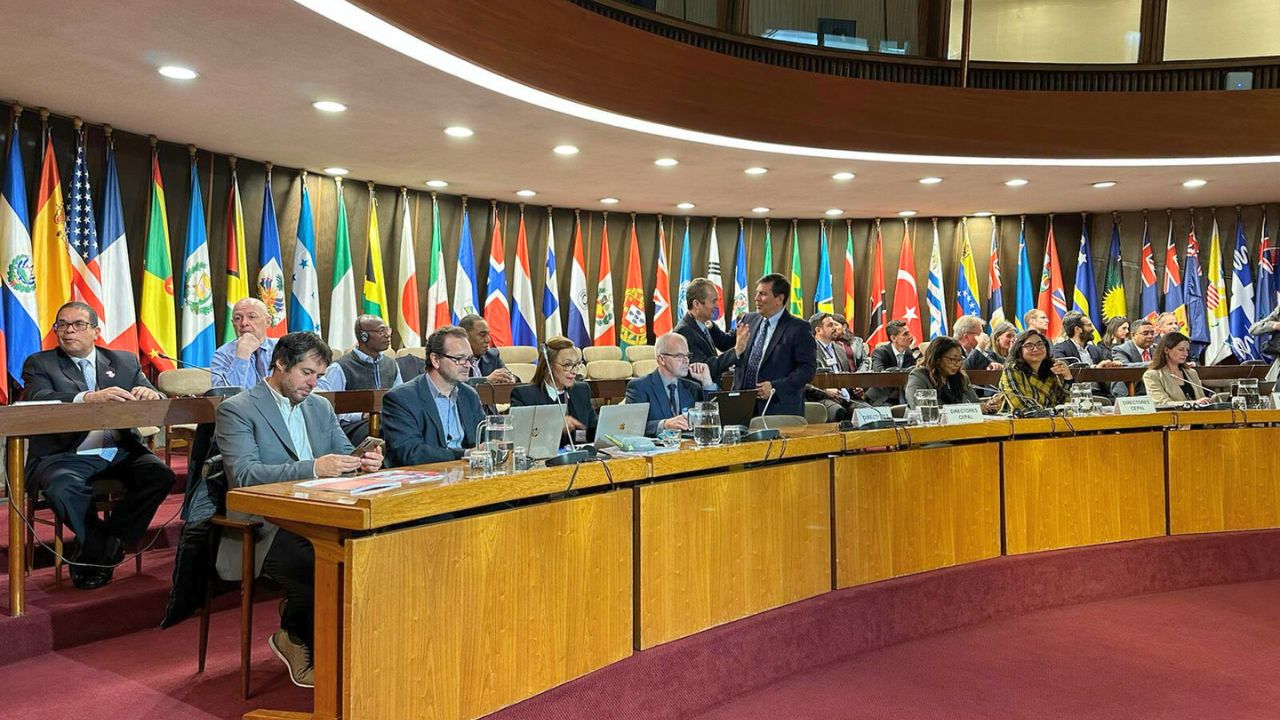Leer este articulo en español
A new report on the taxation of the mining industry in Zambia, the impact of wealth tax in Canada, countries in Latin America and the Caribbean coming together to strengthen tax cooperation. These are just some of the activities held by Global Alliance for Tax Justice (GATJ)’s members in the first half of May 2023.
Check the highlights from the GATJ members around the world:
Africa
On 16 May, Tax Justice Network Africa (TJNA) released a report developed in partnership with Publish What You Pay Zambia calling for a more sustainable and equitable tax system for Zambia to benefit from energy transition windfall.
Titled “Taxing Zambia’s Mining Sector for the Energy Transition: Opportunities and Challenges”, the piece is signed by TJNA’s policy officer Mukupa Nsenduluka, public finance consultant Mbewe Kalikeka, and with contributions from Nsama Cikwanka.
While recognizing that the mining sector is vital for the country’s economy, the authors point that this industry should pay their fair share of taxes and recommend a series of actions that could optimise the tax system and ensure the use of mineral resources contribute to Zambia’s development goals.
Read the full report on TJNA’s website.
📈According to a new report by TJNA & @pwypzambia , Zambia needs to rethink mining taxation & reposition its fiscal regime to optimize tax revenue collection from copper mining.⛏️#TaxJusticeAfrica #EnergyTransition
Read more 👉 https://t.co/KASceW16l7
Like, comment, share pic.twitter.com/8pDfMMJ83g
— Tax Justice Network Africa (@TaxJusticeAfric) May 17, 2023
Latin America and the Caribbean
After participating in the pre-Fiscal Summit event promoted by the Colombian Ministry of Finance in Bogotá, a delegation of Red de Justicia Fiscal de América Latina y el Caribe (RJFALC) and Latindadd joined the XXXV Regional Fiscal Policy Seminar promoted by United Nations Economic Commission for Latin America and the Caribbean (featured picture) that took place from 15 to 17 May in Santiago (Chile).
As a result of the meeting, several countries agreed on creating a platform to strengthen regional tax cooperation, which was celebrated by civil society organisations. They also underlined the importance of ensuring mechanisms in the platform to guarantee civil society participation in discussions related to fiscal policy.
Check out more details on the seminar on RJFALC’s Twitter.
📢#IMPORTANTE: En el marco del cierre del Seminario Regional de Política Fiscal de @cepal_onu que tiene lugar en Santiago de Chile, varios países de la región acordaron impulsar la creación de una Plataforma inédita para fortalecer la cooperación tributaria. Abrimos 🧵👇 pic.twitter.com/zvVuWtYKKz
— Red de Justicia Fiscal ALC (@justiciafiscal) May 17, 2023
North America
Canadians for Tax Fairness (C4TF) published a study that shows how Canada could raise over $400 billion in 10 years with a 1% tax on households with net wealth above 10 million, 2% above 50 million, and 3% above 100 million. This system would raise $32 billion in the first year alone.
Alex Hemingway, economist at the Canadian Centre for Policy Alternatives (CCPA) and author of the study, gave examples of what this amount of money could pay for: universal pharmaceutical coverage, free tuition for post-secondary educations and 100,000 affordable homes each year.
Read more about the study on C4TF’s website.
Latest wealth tax estimates + research into corporate profits & tax avoidance show we have the money to make crucial investments in areas such as pharmacare and climate change mitigation but we need to tax wealth and profits fairly: https://t.co/drD2Lk5pEW #cdnpoli #TaxTheRich
— Canadians for Tax Fairness (@FairTaxCanada) May 17, 2023
Tax transparency for major multinationals is called for not only by the Financial Accountability and Corporate Transparency (FACT) Coalition, but by investors representing $10 trillion in funds, shows a new analysis by Oxfam America.
As FACT shared, the need for more transparency was further proven in a Senate hearing that examined the tax-dodging practices of major U.S. pharmaceutical companies. “It’s now a matter of when, not if, public country-by-country reporting becomes the global standard for tax transparency”, said Ian Gary, executive director of the coalition.
Check out more information on the FACT Coalition’s website.
"As investor demand for greater tax transparency reaches a new high water mark, the SEC should act decisively to cement a strong international standard by advancing public country-by-country reporting in line with 🇦🇺’s proposed regime." – FACT's @Ianpgary https://t.co/D6pWiiDRrZ
— FACT Coalition (@FACTCoalition) May 11, 2023
Europe
There’s still time to register for the webinar “Rebranding or reshaping the global financial architecture?”, which will be hosted by Eurodad, Latindadd and other partners on 23 May.
The panel aims to initiate critical dialogue on the current proposals to transform the global financial architecture, focusing on three interlinked initiatives, the MDBs reform (exemplified by the World Bank Evolution Roadmap), the Bridgetown initiative (evolving proposal introduced by Barbados) and New Global financial pact (to be held as a Summit in June 22-23rd).
More information about the webinar and registration on Eurodad’s website.
📌 #SaveTheDate – On May 23 we'll discuss w/ @DanielaGabor, @liane_boell & Mariama Williams risks and opportunities of the current proposals to transform the global financial architecture.
🗣️ Spanish interpretation available.
Register today ✍️➡️ https://t.co/93XX0xpz9j pic.twitter.com/4DuJTfpeDw
— Eurodad (@eurodad) May 8, 2023
